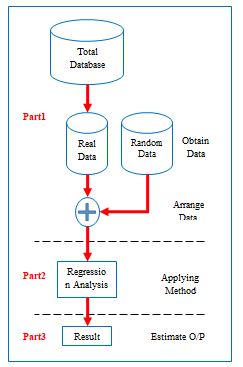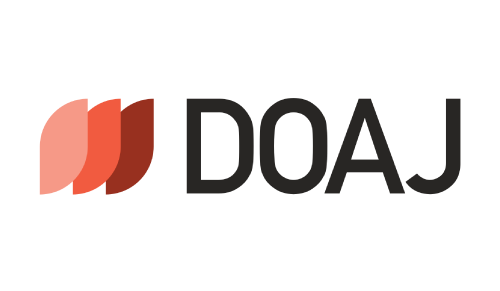Selecting Minimum Acceptable Student’s Mark to Participate in Bologna Final Exam Using Machine Learning Approach
DOI:
https://doi.org/10.21271/ZJPAS.35.4.09Keywords:
Student Record, Machine Learning, Linear Regression, Polynomial Regression, Bologna exam.Abstract
In the higher education sector, the minimum acceptable mark for participation in the final examination in the Bologna system can vary depending on the particular institution, program, and country. In general, most institutions require students to have a minimum overall score of “Pass” to be eligible to take final exams. However, some institutions may have to change the minimum acceptable mark to be in line with the approved system and their examination policy. This research sheds light on the possibility of accepting extra students to participate in the final exam, if their scores are slightly less than the general admission score, and predicting their success based on the student’s grades in previous years. Different kinds of supervised machine learning regression analysis have been applied to give promising results when applied to previous actual records of students in the College of Engineering, in addition, to hundreds of random marks to increase the accuracy of estimating students' acceptance rate for final exams. This research will help weak grades students and allow them to participate in the final exam with the possibility of success.
References
ALSHANQITI, A. & NAMOUN, A. 2020. Predicting student performance and its influential factors using hybrid regression and multi-label classification. IEEE Access, 8, 203827-203844.
ANWAR, A. 2021. A Beginner’s Guide to Regression Analysis in Machine Learning. Towards Data Science.
BYDŽOVSKÁ, H. 2016. A Comparative Analysis of Techniques for Predicting Student Performance. International Educational Data Mining Society.
CAPPELLARI, L. & LUCIFORA, C. 2009. The “Bologna Process” and college enrollment decisions. Labour economics, 16, 638-647.
DEL BONIFRO, F., GABBRIELLI, M., LISANTI, G. & ZINGARO, S. P. Student dropout prediction. Artificial Intelligence in Education: 21st International Conference, AIED 2020, Ifrane, Morocco, July 6–10, 2020, Proceedings, Part I 21, 2020. Springer, 129-140.
KRISHNA, G. & CHANDRAN, A. S. 2021. PREDICTIVE ANALYSIS OF FOOTBALL PLAYER MARKET VALUE USING MACHINE LEARNING.
MÁRQUEZ-VERA, C., MORALES, C. R. & SOTO, S. V. 2013. Predicting school failure and dropout by using data mining techniques. IEEE Revista Iberoamericana de Tecnologias del Aprendizaje, 8, 7-14.
MEIRIZA, A., LESTARI, E., PUTRA, P., MONAPUTRI, A. & LESTARI, D. A. Prediction graduate student use naive bayes classifier. Sriwijaya International Conference on Information Technology and Its Applications (SICONIAN 2019), 2020. Atlantis Press, 370-375.
MONTGOMERY, D. C., PECK, E. A. & VINING, G. G. 2021. Introduction to linear regression analysis, John Wiley & Sons.
NAGPAL, A. 2022. L1 and L2 Regularization Methods, Explained [Online]. Available: https://builtin.com/data-science/l2-regularization.
NASTESKI, V. 2017. An overview of the supervised machine learning methods. Horizons. b, 4, 51-62.
RONG, S. & BAO-WEN, Z. The research of regression model in machine learning field. MATEC Web of Conferences, 2018. EDP Sciences, 01033.
SEBER, G. A. & LEE, A. J. 2003. Linear regression analysis, John Wiley & Sons.
THANGAVEL, S. K., BKARATKI, P. D. & SANKAR, A. Student placement analyzer: A recommendation system using machine learning. 2017 4th International Conference on Advanced Computing and Communication Systems (ICACCS), 2017. IEEE, 1-5.
TSIAKMAKI, M., KOSTOPOULOS, G., KOTSIANTIS, S. & RAGOS, O. 2020. Transfer learning from deep neural networks for predicting student performance. Applied Sciences, 10, 2145.
VADAPALLI, P. 2022. Types of Regression Models in Machine Learning. upGrad Education Private Limited.
VIJAYALAKSHMI, V. & VENKATACHALAPATHY, K. 2019. Comparison of predicting student’s performance using machine learning algorithms. International Journal of Intelligent Systems and Applications, 11, 34.

Downloads
Published
How to Cite
Issue
Section
License
Copyright (c) 2023 Ghassan Akram Qattan, Mardin Abdullah Anwer, Abbas Mohamad Ali

This work is licensed under a Creative Commons Attribution 4.0 International License.













